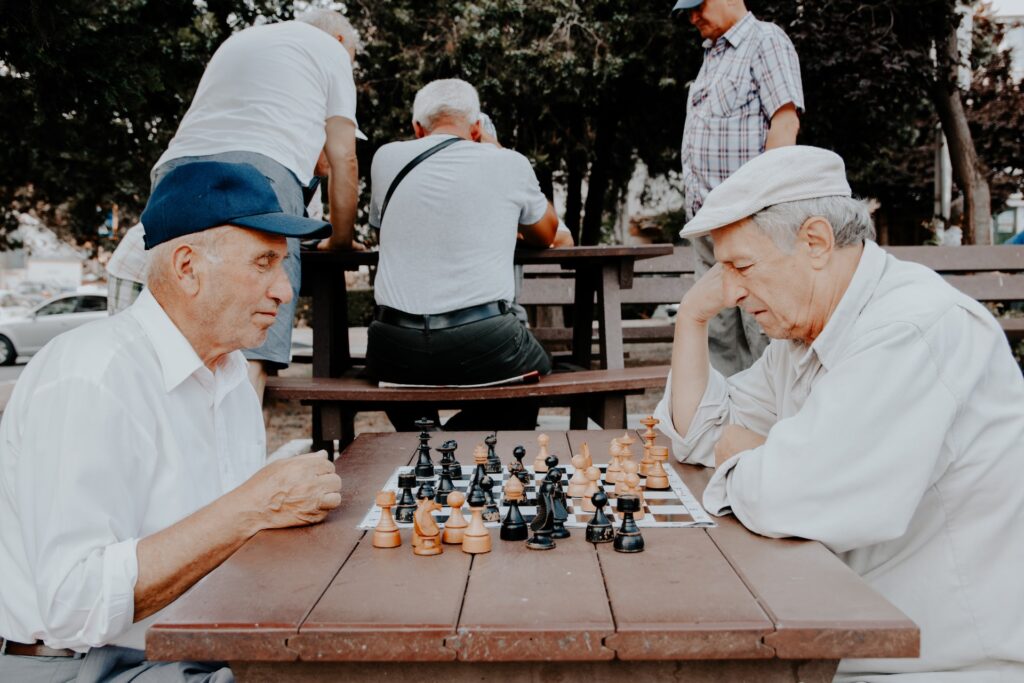The Importance of Social Support in Mental Health
The importance of Social Support in Mental Health has been observed repeatedly in psychological research. Mental health is defined as a state of well-being, in which someone knows their capabilities and uses them effectively and productively in a way that is useful for their communities. Health is a concept influenced by a set of complex factors which includes social support. Social factors can play a critical role in fostering positive mental health.
Social support (or the perception of support) provides physical and psychological advantages for people faced with stressful physical and psychosocial events and is considered as a factor reducing (and protecting against) psychological distress.
What is social support?
Social support, broadly defined, is a network of people who are typically known and interact with an individual or organization. It is the basis for human networks which provide us with social protection, and it’s increasingly recognized as an important component of mental well-being.
Physical, social, and psychological aspects of social support are very important in regards to an individual’s mental health. Social support is based on shared interests, attitudes, beliefs, and perceptions that are essential for promoting psychological well-being and functional integration. Social support includes activities such as sharing and caring behaviors that help individuals get through stressful life experiences.

How does social support impact Mental Health?
We all have social support systems, though the strength of an individual’s social support network can vary greatly. A person can be classified as having a strong or weak social support system. Mental health problems or stressors can be due to the negative effects of social isolation and inadequacy, lack of social support, or lack of appropriate support. Studies from countries such as China, Kenya, and the United States have revealed that if patients have poor social support, then they are more likely to resort to self-medication when facing mental health issues which is less effective than professional aid through interventions such as psychotherapy.
Poor social support can also negatively impact physical health, which may then, in turn, contribute to mental health challenges or conditions. Social integration has routinely been identified in mortality studies as a protective factor. Health behaviors can also be influenced by social support. Such health factors may include diet, exercise, smoking, alcohol intake (or other drug use), which may be modulated by perceptions of those behaviors by either the social support network or society at large.
As an example, social integration may affect someone’s willingness to seek advice, which may then convince them to engage in preventative care, health-promoting behaviors, or avoid situational stressors. Other theoretical models suggest that social support helps psychologically buffer individuals from the effects of stressful events. In short, social support can assist with:
- Improving the ability to cope with stressful situations
- Alleviating the effects of emotional distress
- Promoting lifelong good mental health
- Enhancing self-esteem
- Lowering cardiovascular risks, such as lowering blood pressure
- Promoting healthy lifestyle behaviors
- Encouraging adherence to a treatment plan
Types of Social Support
Social support techniques allow for a person to connect, receive advice, seek suggestions or encouragement when needed, and engage with other people who share similar interests. This support is more important for those with mental health conditions, or those from socio-economic backgrounds predisposed to the development of mental health disorders.
Social support can come in many different forms:
- Emotional support is a type of social support where the person provides emotional comfort to the person in distress. Close friends and family members provide hope and a listening ear. This technique is frequently used in social support for mental health that is important as it can impact the person’s ability to cope and manage.
- Instrumental Support. Instrumental support is defined by tangible aid and services. This could include a family member providing child-care while an individual goes to work or medical appointments.
- Informational Support includes advice, suggestions, or information intentionally delivered for the benefit of the recipient. An example might include friends sharing personal experiences to inform another’s decision-making, or a doctor providing information about a course of treatment.
- Appraisal is similar to informational support, but is more specific and includes information that is specifically useful for self-evaluation. For example, a friend might remind you of all the successes you have found in the face of failure, or all the positive characteristics one possesses following a break-up.
Social support can also include professional support, such as mental health professionals. Therapeutic care involves appropriate interventions specifically formulated to assist a specific individual with a specific problem, such as anxiety, depression, or symptoms of PTSD. The therapist’s job is to teach the patient or patient care partner the skills they need to manage distress, such as progressive muscle relaxation or deep breathing.

The importance of social support
Social support is generally associated with broad factors such as identity, support, ties, networks, and empathy. It can also protect and promote healthy, self-directed lifestyles. Further, social support has been shown to support better interpersonal functioning, which in turn facilitates physical and psychological wellbeing. Social support fosters self-esteem and inhibits feeling incompetent or helpless in coping with stress. There is a preponderance of evidence that suggests social support is linked with lower depression, lower anxiety, and lower hopelessness levels among depressed patients.
Tactics for Establishing and Improving Social Support
While we all might know someone as “the social butterfly”, not everyone is naturally social. When social support is identified as a goal, a natural conclusion is that the only way to increase social support is to increase friendships. While that is certainly one way to approach the goal of increasing social support, there are lots of ways to increase social support that might surprise you, such as:
- Volunteering. Pick something that is important to you and get involved. These could be enjoyable activities, such as sports or physical activities, or activities that benefit groups of people important to you, such as underserved populations. You’re sure to meet others who share similar interests and values.
- Join a gym or fitness group. We have talked about the importance of physical activity previously here. Incorporating physical fitness into your day is an important part of a healthy lifestyle. You can make friends while you exercise. Look at gyms or fitness-oriented groups in your area using a site like Meetup.
- Take a class. Local college or community education courses put you in contact with others who share similar hobbies or pursuits. Alternatively, you might take classes oriented towards the creative arts, music, or hobbies like photography.
- Look online. Social networking sites can help you stay connected with friends and family. Be sure to stick to reputable sites, and be cautious about arranging in-person meetings.
Conclusion
Social support is a crucial factor in ensuring health-related well-being in both individuals and the population. In this article, we have discussed how social support and social emotions affect mental health. They both impact the individual’s subjective well-being and mental health. Social support and social emotions are intimate relations between an individual and their group of family, friends, and social relationships. They are grounded in the social, emotional, and cognitive resources of each individual, which are focused on the ability to manage stress, through which we could all use a little more support. Looking for assistance with building social support? We’d love to help.
- Which Therapy is Best? - December 14, 2023
- How to deal with Burnout when you’re sick of everything and everyone. - February 23, 2022
- The Hidden Dangers of Social Media: How It Can Eat Away at Your Mental Health - August 21, 2021






